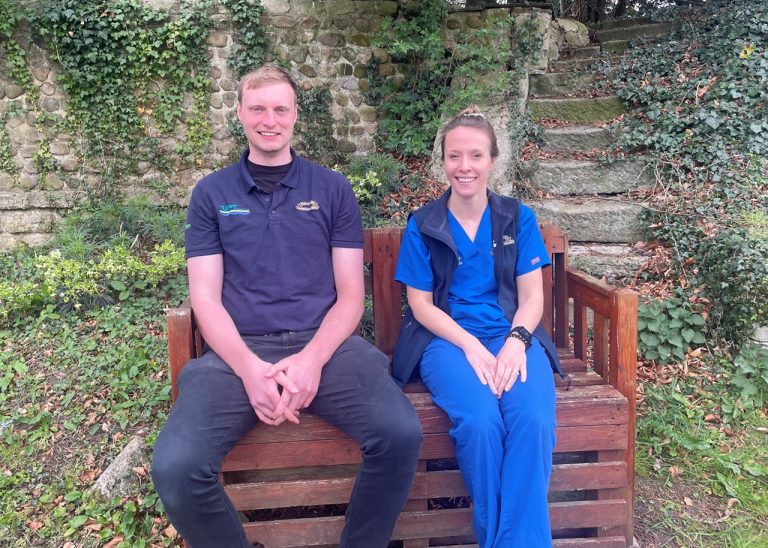North Yorkshire veterinary group welcomes new partners
RPS Group secures £6.2m Yorkshire retrofit contract
£50m secured for Leeds South Bank apartment scheme
A major residential development in Leeds’ South Bank has secured £50 million in development financing from Homes England. The project, located on Water Lane, will deliver 375 apartments across two linked towers reaching up to 26 storeys.
The development includes a mix of one-, two-, and three-bedroom units, over 9,000 sq ft of outdoor communal areas, and more than 6,700 sq ft of internal amenities, such as co-working space, a gym, podium gardens, and rooftop terraces.
In addition to the Homes England loan, the project received a £4.4 million grant through the West Yorkshire Combined Authority’s Brownfield Housing Fund. Heim Global Investor is leading equity funding via its UK Residential Fund, which is backed by the Greater Manchester, Merseyside, and West Yorkshire Pension Funds.
Construction began in May 2024 and is expected to be completed by early 2027. McLaren Living is overseeing the development, and HG Construction is the main contractor.
This scheme aligns with regional priorities to regenerate underutilised brownfield land and deliver energy-efficient rental housing in high-demand urban areas. It also highlights increasing collaboration between public agencies and institutional investors to drive urban housing delivery.
April sees leap in inflation
New firms boost Harrogate flexible workspace uptake
Three new businesses have moved into Copthall Bridge, the £10.5 million redeveloped office site in Harrogate, signalling strong ongoing demand for flexible workspace solutions in the region.
Sustainability consultancy Flotilla, IT hardware firm ITinstock, and national accountancy group TC Group have joined a growing roster of tenants at the serviced office hub. Located on Station Parade near Harrogate’s transport links, the site caters to hybrid working needs with private offices, shared coworking zones, meeting rooms, and wellness facilities.
Developed by workspace provider WorkWell, Copthall Bridge had been vacant for over six years before its refurbishment. Since opening earlier this year, more than a third of its space was let within the first two weeks. It can accommodate teams of up to 40 and is aimed at growth-oriented businesses seeking high-specification, agile work environments.
The building now hosts a mix of regional and national firms, including Mobile Tornado, Primeast, Chronos Hub, Grateful, and Evelyn Partners. Once fully occupied, it is expected to support approximately 360 jobs in Harrogate’s town centre.
Director disqualified for 11 years after dishonestly securing Covid loan
“The Insolvency Service will continue to investigate those who abused this scheme – designed to help small businesses during the pandemic – and bring them to justice.”
Central Plumbing & Heating Lincoln Ltd went into liquidation in October 2022. The disqualification order prevents Barnes from being involved in the promotion, formation or management of a company, without the permission of the court.Carbon capture tech scales up in Yorkshire
Huddersfield-based engineering firm Thomas Broadbent & Sons has completed testing on the world’s largest Rotating Packed Bed (RPB) carbon capture unit, a major step forward for commercial decarbonisation technology. Developed in partnership with London firm Carbon Clean, the CycloneCC system is now ready for deployment and can capture up to 285 tonnes of CO₂ per day.
The 160-year-old company led the design and manufacturing of the new system at its Queen Street South facility. Carbon Clean, a global player in carbon capture solutions, aims to use this scalable tech to accelerate uptake across heavy industries. The breakthrough puts Huddersfield on the map as a key player in Britain’s clean tech manufacturing ecosystem.
The CycloneCC is part of a broader movement to commercialise carbon capture at scale, similar to past trends in solar and EV battery adoption. For B2B stakeholders, this signals a rising opportunity for industrial emitters seeking viable, off-the-shelf decarbonisation tools. The move also reinforces the role of traditional UK engineering firms in delivering next-generation environmental solutions.
Leeds social enterprise lists business hub for sale
Shine, a Leeds-based social enterprise, has placed its 40,000 sq ft Grade II-listed headquarters in Harehills on the market. The Victorian-era building, originally constructed in 1897 as Harehills Middle School, was transformed by Shine into a business and events centre in 2008.
The site spans one acre and includes office and co-working spaces, meeting rooms, and a conference centre. It also features an outdoor amphitheatre-style garden, an allotment, parking for 55 vehicles, EV charging points, and cycling facilities.
Eddisons is marketing the property. The building is currently used by various organisations, including the NHS, the University of Leeds, private firms such as Goldman Sachs, and global consultancies.
Following the sale, Shine’s founders plan to concentrate on scaling their SheCanShine programme, which supports women-led start-ups through peer-driven networks.
The asset is expected to appeal to investors, institutions, and operators seeking a distinctive, income-generating property with scope for further development in a community-oriented location.
Keepmoat targets 800 homes annually in East Yorkshire amid market pressures
Housebuilder Keepmoat is scaling up plans to deliver 800 new homes annually across East Yorkshire, an increase from the current rate of 630, as it responds to steady demand and shifting buyer behaviour. The company is expanding its regional operations, supported by 15 recent construction, surveying, architecture, and engineering hires, and expects to be active on 18 sites by spring 2026.
Despite broader market volatility, Keepmoat reports stable buyer interest, particularly for two-bedroom properties. The end of the Help to Buy scheme and adjustments to working patterns have redirected demand towards urban areas with strong commuter links.
Although sales volumes remain below the post-COVID boom, improved mortgage affordability, now below 4%, has supported recovery. National housebuilding volumes have moderated, easing labour pressures and enabling better resource allocation for firms like Keepmoat.
Challenges remain. Once national build levels surpass 200,000 homes, industry-wide talent shortages persist, and planning application delays, driven by resource constraints in local authorities, continue to hamper delivery timelines.
Despite this, land availability is expected to improve over the next 18 months, thanks to the government’s push to deliver 1.5 million homes during this parliament. However, pressure remains in the affordable housing segment as registered providers face funding constraints until the next allocation round, expected in April 2026.
Council seeks new contractor after delays in Grimsby bridge project
North East Lincolnshire Council is terminating its contract with Spencer Group to refurbish Grimsby’s Corporation Road Bridge, citing unacceptable delays in the £5 million project. The council is seeking a new contractor to complete the remaining work, including restoring the Grade II-listed bridge’s lifting mechanism.
The project began in 2023 and involved wrapping the structure in protective sheeting during restoration. While much of the bridge has recently been unveiled, the final stages have been hindered by unforeseen rust and deterioration that required additional surveys and extended the timeline.
Spencer Group expressed disappointment at the termination and attributed delays to unforeseen conditions that increased workload and costs. The council, however, has signalled a need to expedite completion and is prioritising the appointment of a new specialist firm to reopen the bridge as soon as possible.












